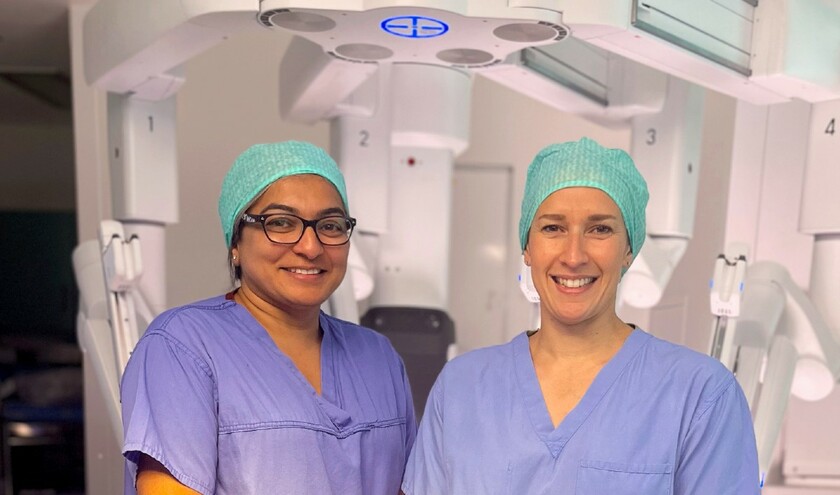Surgeons from Worcestershire Acute Hospitals NHS Trust are using a state-of-the-art robot to help perform some surgeries with greater precision, reduced post-operative pain, and a lower risk of complications from blood loss.
More than 100 patients with conditions such as endometriosis, heavy menstrual bleeding, fibroids and gynaecological cancers – many of which require a hysterectomy – have now undergone surgery using the robot, allowing surgeons to perform more complex cases than they would previously have been able to offer.
Robotic surgery is performed by specially trained surgeons. The robot provides the surgeons with a 3D and highly-magnified view of the areas they are operating on, with the instruments offering a greater range of movement than in conventional keyhole surgery, allowing for even greater surgical precision.
The Da Vinci Xi robot was first used at the Redditch hospital in 2022 for prostate cancer surgery, but after more surgeons have been trained in robotic-assisted surgery it can now be offered to patients for various gynaecological, urological, and colorectal conditions. The expansion of robotic surgery in gynaecology is particularly helpful for surgery to remove endometriosis and also allows patients with obesity to receive surgery who were previously advised to lose weight and be treated medically.
On average, patients undergoing robotic surgery for hysterectomy or removal of endometriosis at Alexandra Hospital go home the same day as their surgery, and there have so far been no patients who have needed to be converted to open surgery.
Consultant gynaecologist and endometriosis specialist, Donna Ghosh, said: ‘We anticipate further expanding our offering towards joint surgery across different clinical specialities in future.'
Rina Panchal, consultant gynaecologist and gynaecology cancer specialist, added: 'The complexity of cases we are undertaking within the speciality is increasing. We can now operate locally on patients with malignant or pre-malignant endometrial conditions with a high BMI that previously were either treated medically and advised to lose weight or referred to other hospitals further afield.'



